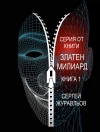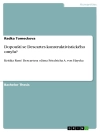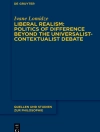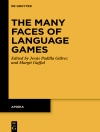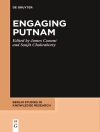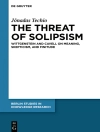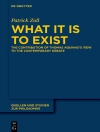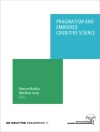Eine neue wissenschaftliche Wahrheit pflegt sich nicht in der Weise durchzusetzen, daß ihre Gegner überzeugt werden und sich als belehrt erklären, sondern vielmehr dadurch, daß die Gegner allmählich aussterben und daß die heranwachsende Generation von vornherein mit der Wahrheit vertraut gemacht ist. Max Planck In manchen Disziplinen, oder sogar in den meisten, würden Sie sofort Probleme bekommen, wenn Sie bestimmte Autoren zitieren. Man würde dann sagen: ‘Der gehört nicht zu uns, der versteht nichts vom Fach.’
Friedrich G. Wallner
Inhoudsopgave
Table of Contents
Preface
Chapter
Analysis of and on Chinese Medicine
Fengli Lan (Shanghai University of Traditional Chinese Medicine)
Friedrich G. Wallner (University of Vienna)
Triple Jiao: Having a Name but No Shape?
Fengli Lan (Shanghai University of Traditional Chinese Medicine)
Friedrich G. Wallner (University of Vienna)
Transmitting Trend of Chinese Medicine in the West:
From Skills to Way
Zhang Lishan (Dongzhimen Hospital, Beijing University of Chinese Medicine)
The Whole – the Starting Point of Understanding Disease in TCM
Susanne Hiekel (Universität Duisburg-Essen, Institut für Philosophie)
Traditionelle Chinesische Medizin –
Ein paralleles Forschungsprogramm
Chapter 2
European Reflections on Problems of Health and Medicine
Nicole Holzenthal (University of Oviedo, Intersophia –
International Network of Philosophical Studies)
Culture and Medicine in the Philosophical Materialism and Constructive Realism
Andreas Schulz (University of Vienna)
How can different medical systems be true at the same time?
Popper, Feyerabend and Wallner about truth and method
José A. López Cerezo (Universidad de Oviedo)
North by Northwest:
The Seach for Objectivity in the Origins of Modern Western Medicine
Konstantin S. Khroutski (Veliky Novgorod, Russia,
Novgorod State University after Yaroslav-the-Wise)
What can neo-Aristotelian ideas contribute to establish an Integrative medicine?
Gerhard Klünger (University of Vienna)
Anthroposophic medicine (AM)
A short introduction into basic concepts
Hisaki Hashi (University of Vienna)
Dr. Morita’s Psychophysical Therapy Influenced by Zen Buddhism
– A Comparison of the Thinking Principles of Morita and the Cognitive Scientist M. Schlick
Chapter 3
The Special Situation of Psychotherapy
Kurt Greiner (Sigmund Freud University)
Gabriela Breindl (Sigmund Freud University)
Tools of Experimental Hermeneutics in Psychotherapy Science
Chapter 4
The Buddhist Perspective
Sumalee Mahanarongchai (Bangkok, Thailand, Thammasat University)
The Wheel of Life and Buddhist Understanding of Health
Pataraporn Sirikanchana (Bangkok, Thailand, Thammasat University)
Thai Buddhism on Health
Anchalee Chaiyasuj (Thailand, Ministry of Public Health)
Thai Traditional Medicine in Thailand Health System
Chapter 5
Aspects of Health from the Viewpoint of Islamic Culture and Philosophy
Mohammad Khodayarifard (Iran, University of Tehran)
Gholam Ali Afrooz (Iran, University of Tehran)
Sayyed Mohsen Fatemi (The University of British Columbia)
Yasamin Abedini (University of Isfahan)
Spiritual-Religious Family Therapy:
History, Theoretical and Experimental Bases
and its Techniques and Principles
Saeid Zarghami-Hamrah (Kharazmi University)
Mental health in intellectual/peripatetic attitude in Islamic philosophy with an emphasis on ideas by Ibn Miskawayh:
Strangification of the doctrine of the mean?


